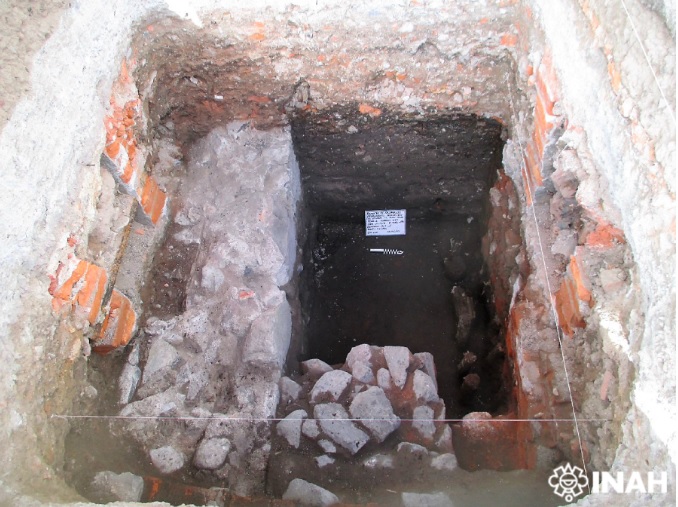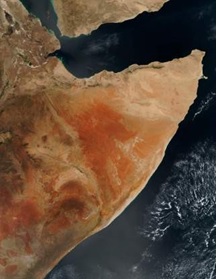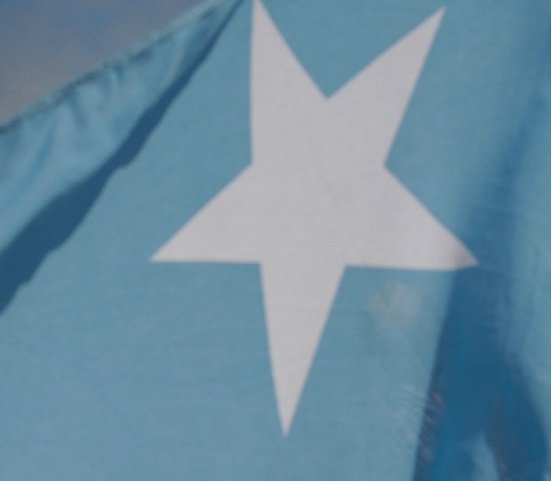By Mohamed Garad
The world we live in is full of mysterious events that sometimes change our perception of the globe forever. Among the events that sparked astound interests that the world has witnessed recently is the discovery of the archaeological remains of the great civilization of the Aztecs in Mexico City, Mexico. It was on the night of the 21st of February 1978 when a group of workmen digging electric cables hit struck the first stone of what once used to be a vast and advanced civilization just two meters into the earth.

The discovery of this archaeological ruin was remarkable. President of Mexico, Jose Lopez Portillo, ordered the demolition of entire blocks of the city and a full-scale archeological dig of the area. The findings were astonishing. The more the archeologists dug in, the deeper they went into a vast empire beneath the earth surface of Mexico City. In the eyes of the residents of Mexico City, an entire civilization that nobody heard about in the past rose out of the familiar streets.
Narrating the history of the Aztecs civilization is not the subject of this article and it could be different in many aspects of the nation I will talk about in the rest of this article, but the intent is to show how easily nations can go under the soil and become the forgotten world beneath our feet.
It could be debatable to tell why the city of Tenochtitlan fell prey into the hands of the brutal Spanish colonist, Hernan Cortes, who buried the whole city dead with its towers, temples and architects in 1520 that led the Aztecs civilization perish in ruins and got forgotten with its history, but history shows that great nations are founded on great values, and they mainly fail when the subsequent generations abandon the great founding values. Authentic religious scripts affirm this historical finding. Edmund Burke—the renowned Irish-born British statesman, economist, and philosopher in the 18th century— better observes this reality when he famously stated, “People will not look forward to posterity who never look backward to their ancestors.”
The damning destiny to those who neglect their history, the footsteps of their founding fathers and cultural traditions necessitates nations to always be in the struggle to stay on their great founding values, preserve their national heritage and core traditions for the sake of their existence, identity, continuity and flourishment in terms of military power, culture and economy.
However, nowhere is the struggle for cultural heritage and national values bitter and so consequential than when an entire civilization is completely brutalized by alien forces who obliterate ancient social structures, institutions, values, norms and even land structures and substitute them with new alien institutions, laws, norms and artificial borders.
Africa as a whole, except Ethiopia who did conspire with the invaders and took part in the colonial crusade, suffered such obliteration when Europe brutally raided the continent and colonized the first humans. However, the degree and ramification of such annihilation on my nation, the Somali nation, though it’s not to the degree of extinction so far like the Aztecs suffered—thanks to brave resistance of our heroes—was so extensive in which its ruinous legacies are now threatening to fundamentally alter the shape and/or the continuity of the whole nation eternally.

Before the colonial crusade, the Somali people were a shining homogeneous nation who reside in what’s present-day Somalia, Djibouti, and large parts of Ethiopia and Kenya. In terms of central authority, their most remarkable ancient chronological States were that of Punt, Ifat and Adal. However, in the late medieval period to the dawn of colonialism, Somalis had a very sophisticated decentralized system with a rich culture of poetry in which the renowned African historian, Ali Mazrui, called an impressive civilization that thrived without the structures of State control. However, that impressive civilization was cut short when it was subjected to European occupation and the Somali people and their land were arbitrarily divided into five spheres of colonial influence.
This colonial legacy left long-lasting ruins in the psyche and future of the Somali people. Their post-colonial State quickly perished in the task for the national reunification of the divided nation and the people of the two regions who formed that State are in the abyss of Statelessness for more than three decades while two of the five divided regions are to this day subjected into State boundaries, Ethiopia and Kenya, in which they have never voluntarily accepted. The only region that so far successfully regained and maintained State sovereignty, Djibouti, is the sister standing alone.
Nonetheless, the dark spot of the curse of the colonial legacy doesn’t end there. Rather the problem lies in a belligerent effort to perpetuate that colonial legacy on the sharp teeth of the geography, history, language and culture of the Somali people. And as obviously that seemed not easily sustainable, recently the proponents of this colonial legacy are employing new lethal designs of dominance: a threat of the dis-Somalisation of the entire peninsula. This scheme was designed to divorce Somalis from the real beings they are, i.e., from their culture, history, core values and ultimately from their land through sophisticated campaigns of interferences, State sanctioned fake narratives, deceit, and disinformation.
Such reality puts the Somali nation in the horn at war that it cannot loss. A war for existence, self-preservation, self-heal and war to remove any deadly invasive foreign organ transplanted into the Somali body politics, social values and lands. Somalis should win such a war simply to secure the best of their own national identity and land. Who becomes victorious in this war of existence and freedom-vs-dominance remains to be seen, but might the almighty Allah forbid that my nation becomes the forgotten nation that lies beneath the earth’s surface after few centuries!
Mohamed Garad
Email: mohagarad571@gmail.com
———-
Mohamed Garad is an independent researcher who studies the social, economic and political issues of horn of Africa


Leave a Reply